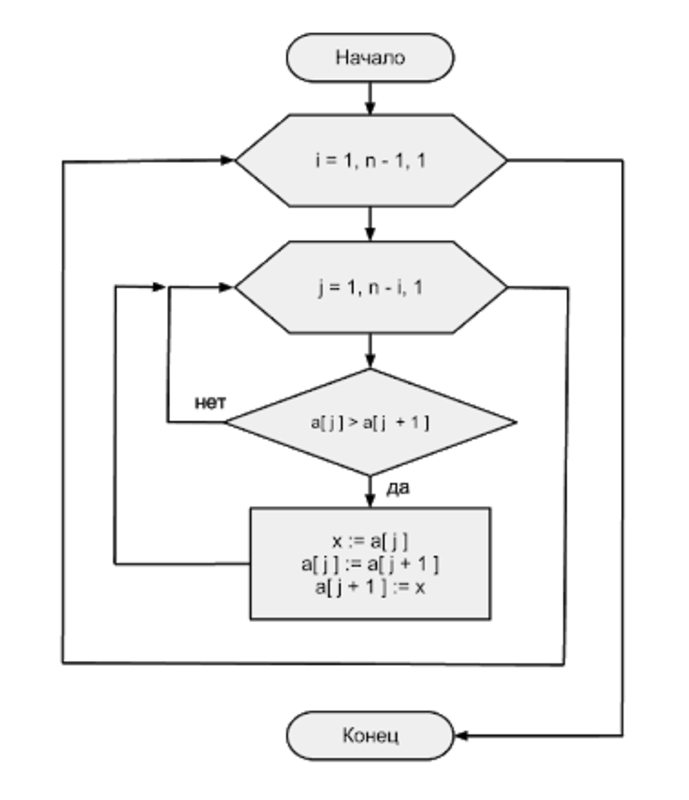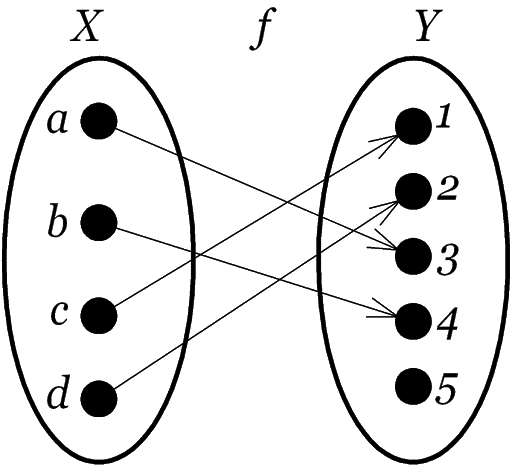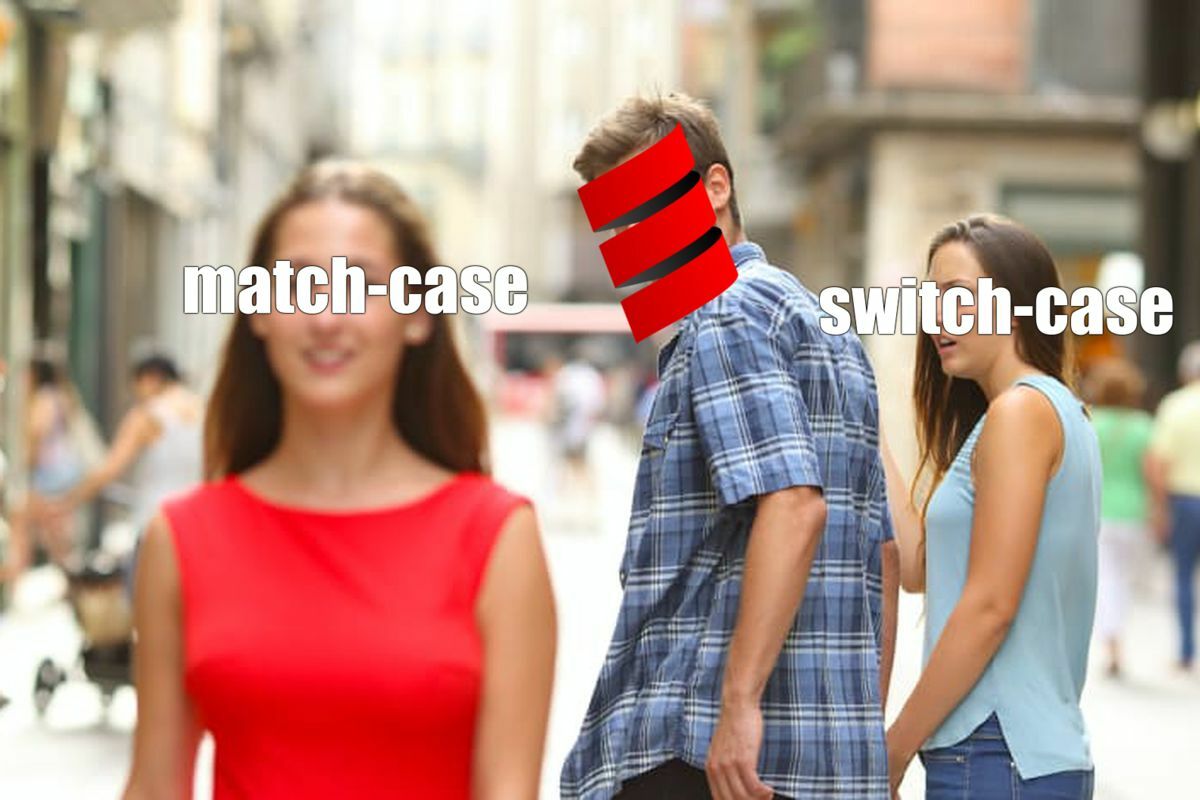NAUMEN Яценко Иван
Введение в функциональное программирование
Яценко Иван
Императивное программирование
- в исходном коде программы записываются инструкции (команды);
- инструкции должны выполняться последовательно;
- данные, получаемые при выполнении предыдущих инструкций, могут читаться из памяти последующими инструкциями;
- данные, полученные при выполнении инструкции, могут записываться в память.
import scala.collection.mutable
object Sort {
def bubble(input: mutable.ListBuffer[Int]): Unit = {
if(input.isEmpty) ()
else {
for(i <- input.indices) {
for(j <- input.indices.drop(i).reverse) {
val a = input(i)
val b = input(j)
if(a > b) {
val buffer = a
input(i) = input(j)
input(j) = buffer
}
}
}
}
}
}
val arr = mutable.ListBuffer(3, 2, 6, 4, 6, 1) // ListBuffer(3, 2, 6, 4, 6, 1)
Sort.bubble(arr)
arr // ListBuffer(1, 2, 3, 4, 6, 6)

Функция в математике — соответствие между элементами двух множеств,
установленное по такому правилу, что каждому элементу одного множества соответствует
один и только один элемент из другого множества.


в которой процесс вычислени трактуется,
как вычисление функции от входных параметров.
Основные концепции:
- чистота функций;
- иммутабельность данных;
- ссылочная прозрачность;
- код - композиция функций;
- функция - объект первого класса;
- функции высших порядков;
- сопоставление образцом.
Чистые функции
Функция называется чистой, когда она детерминированна и не несёт в себе побочных эффектов.
Чистые функции
Детерминированность
Функция является детерминированной, если для одного и того же набора входных значений она возвращает одинаковый результат.Чистые функции
Детерминированность
Недетерминированная функция
object Math {
var pi = 3.14d
def circleArea(radius: Double) =
radius * radius * pi
}
Math.circleArea(10) // 314.0
Math.pi = 3.1415926d
Math.circleArea(10) // 314.15926
Детерминированная функция
object Math {
def circleArea(radius: Double, pi: Double) =
radius * radius * pi
}
Math.circleArea(10, 3.14) // 314.00
Чистые функции
Побочные эффекты
IO-операции, передача управления, модификация данных и т.д.
object Math {
private var pi = 3.14d
def setPI(newPi: Double) =
pi = newPi
def getPI() = pi
def circleArea(radius: Double) =
radius * radius * getPi()
}
Иммутабельность данных
Данные неизменны.
var sumOfValues = 0
def findSum(list: Seq[Int]): Unit =
for(item <- list) {
sumOfValues = sumOfValues + item
}
def findSumImmutable(list: Seq[Int], sumOfValues: Int = 0): Int =
if(list.isEmpty) sumOfValue
else findSumImmutable(list.tail, sumOfValues + list.head)
Ссылочная прозрачность
Выражение называется ссылочно прозрачным, если его можно заменить соответствующим значением без изменения поведения программы.
val values = Seq(1, 2)
findSumImmutable(values) // 3
findSumImmutable(Seq(1, 2)) // 3
3
Функции - объекты первого класса
- функции можно хранить в переменных/константах;
- функции можно передавать в качестве агрументов;
- функция может быть результатом вычисления.
object Math {
def sqr(n: Int): Int = n * n
}
object ListFunctor {
def map[A, B](f: A => B): List[A] => List[B] = _.map(f)
}
val sqr: Int => Int = Math.sqr _
val sqrList: List[Int] => List[Int] = ListFunctor.map(sqr)
sqrList(List(2, 3, 4)) // List(4, 9, 16)
Функции - объекты первого класса
Любая функция - экземпляр класса FunctionN[...]
abstract class Function1[A, B] {
def apply(a: A): B
}
(A => B) ~ Function1[A, B]
Лямбда-функции
- выражение, которое состоит исключительно из следующих составляющих:- переменные - включений имён "переменных" (f, x);
- аппликации - применения терм друг к другу (f(x));
- абстракции - реализация лямда-функций (λx.f(x)).
val product: (Int, Int) => Int = tuple => tuple._1 * tuple._2
val sqr: Int => Int = x => product (x, x)
Композиция функций
∀ f: A → B, g: B → C∃ c: A → C = g ∘ f
Т.е. для f(a): b и g(b): c есть c(a) = g(f(a))
def decode: Array[Byte] => String
def parseString[T](parser: Parser[T]): String => T
def parseBytes[T](parser: Parse[T]): Array[Byte] => T =
decode andThen parseString(parser) // ~ bytes => parseString(parser)(decode(bytes))
Каррирование
Преобразование функции нескольких аргументов в функцию одного аргумента, которая возвращает функцию от следующего аргумента, которая возвращает функцию от...curr: ((A × B) → (C)) → (A → (B → C))
//curr - операция каррирования
foo: (A, B, C) => D
curr(foo): A => ((B, C) => D)
curr(curr(foo)): A => (B => (C => D))
Каррирование
def log(time: DateTime, level: Level, msg: String): String
def curriedLog: DateTime => Level => String => String =
time: DateTime =>
level: Level =>
msg: String => log(time, level, msg)
val fixedTimeLogger: Level => String => String = curriedLog(DateTime.now())
val fixedTimeErrorLogger: String => String =
fixedTimeLogger(Level.error)
Каррирование
def log(time: DateTime, level: Level, msg: String): String
def curriedLog(time: DateTime)
(level: Level)
(msg: String): String = log(time, level, msg)
Функции высших порядков
Функция высшего порядка - функция, которая принимает в качестве параметров(-а) или/и возвращает функцию.
def map[A, B](f: A => B, list: List[A]): List[B]
def compose[A, B, C](f: A => B, g: B => C): A => C = (x: A) => g(f(x))
Рекурсивные функции

Рекурсивные функции
Функция называыется рекурсивной, если она вызывает сама себя.
def map[A, B](f: A => B)(list: List[A]): List[B] =
if(list.nonEmpty) f(list.head) +: map(f)(list.tail)
else Nil
at map.appy
at map.appy
at map.appy
at map.appy
at map.appy
Хвостовая рекурсия
Хвостовая рекурсия - рекурсия, в которой рекурсивный вызов является последним.Т.е. результат рекурсивного вызова - результат вычисления функции.
def iterativeMap[A, B](f: A => B)(list: List[A]): List[B] = {
import scala.collection.mutable
val buffer = muttable.ListBuffer[B] = muttable.ListBuffer.empty
for(item <- list) {
buffer += f(item)
}
buffer
}
def tailMap[A, B](f: A => B)(list: List[A]): List[B] = {
@tailrec
def loop(l: List[A], buffer: List[B]): List[B] = if(l.isEmpty) {
buffer
} else {
val head = l.head
val tail = l.tail
loop(tail, buffer :+ f(head))
}
loop(list, List.empty)
}
at map.loop
at map.appy
Сопоставление с образцом
(Pattern matching)

Сопоставление с образцом
| Возможность | switch-case | match-case |
|---|---|---|
| сопоставление с вычисляемым значением (литерал, выражение) | + | + |
| сопоставление с типом | - | + |
| "Распаковка" объектов | - | + |
| Сопоставление с xml | - | + |
| Завершения проверок после совпадения | break | + |
| и много прочего | - | + |
Сопоставление с образцом
Bound-pattern
def foo[A](a: A): Unit = a match {
case x => () // x is A
}
Сопоставление с образцом
Type-pattern
def foo[A](a: A): Unit = a match {
case x: B => () // x is B if a is B
case _: C => // there are no new names and we know that a is C
}
Сопоставление с образцом
Extractor-pattern
def foo[A](a: Option[A]): A = a match {
case Some(x) => x // x is A
case _ => A.default
}
Сопоставление с образцом
@-pattern (pattern binder)
def foo[A](a: Option[A]): A = a match {
case some@Some(x) => x // x is A, some is Some[A]
case _ => A.default
}
Сопоставление с образцом
Pattern guards
def foo[A](a: Option[A]): Int = a match {
case Some(x: Int) if x > 0 => x // x is positive Int
case _ => 1
}
def tailMap[A, B](f: A => B)(list: List[A]): List[B] = {
@tailrec
def loop(l: List[A], buffer: List[B]): List[B] = if(l.isEmpty) {
buffer
} else {
val head = l.head
val tail = l.tail
loop(tail, buffer :+ f(head))
}
loop(list, List.empty)
}
def newTailMap[A, B](f: A => B)(list: List[A]): List[B] = {
@tailrec
def loop(l: List[A], buffer: List[B]): List[B] = l match {
case head :: tail => loop(tail, buffer :+ f(head)) // ::(head, tail)
case _ => buffer
}
loop(list, List.empty)
}
Algebraic data type

Algebraic data type
Комбинации типов:
- сумма (A | B);
- произведение (A & B).
Algebraic data type
Сумма:
type Option[T] = None | Some[T]type List[T] = Nil | ::[T]
type Boolean = True | False
...
sealed trait List[+T]
final case class ::[+T](head: T, tail: List[T]) extends List[T]
case object Nil extends List[Nothing]
sealed trait Boolean
case object True extends Boolean
case object False extends Boolean
Algebraic data type
Произведение:
type StandAloneApp = Host & Porttype BasicAppEnvironment = Database & StandAloneApp
BasicAppEnvironment ≈ Database & (Host & Port)
BasicAppEnvironment ≈ Database & Host & Port
...
case class Database(url: String, username: String, password: String)
case class StandAloneApp(socketConf: (Host, Port))
case class BasicAppEnvironment(appConf: StandAloneApp, db: Database)
Algebraic data type
И Pattern Matching
Сопоставление с образцом - один из способов извлечения данных из алгебраического типа.Algebraic data type
И Pattern Matching
Для произведения типов Extractor-pattern
def startApp(
hostAllowed: Host,
listenPort: Port,
db: Database): Unit
def run(env: BasicAppEnvironment) = env match {
case BasicAppEnvironment(StandAloneApp((host, port)), db: Database) =>
startApp(host, port, db)
}
Algebraic data type
И Pattern Matching
Для суммы типов Type-pattern и/или Extractor-pattern
def describeValue(opt: Option[_]): String = opt match {
case Some(value) => s"There is a \"${value.toString}\""
case None => "There is nothing"
}
def describe(opt: Option[_]): String = opt match {
case _: Some[_] => "There is something"
case _ => "There is nothing"
}
Что мы получаем:
- можно (и нужно) отказаться от переменных;
- можно тестировать по принципу черного ящика;
- огромное число гарантий;
- отказоустойчивость;
- оптимизация на этапе компиляции/разработки;
- продолжать можно долго...